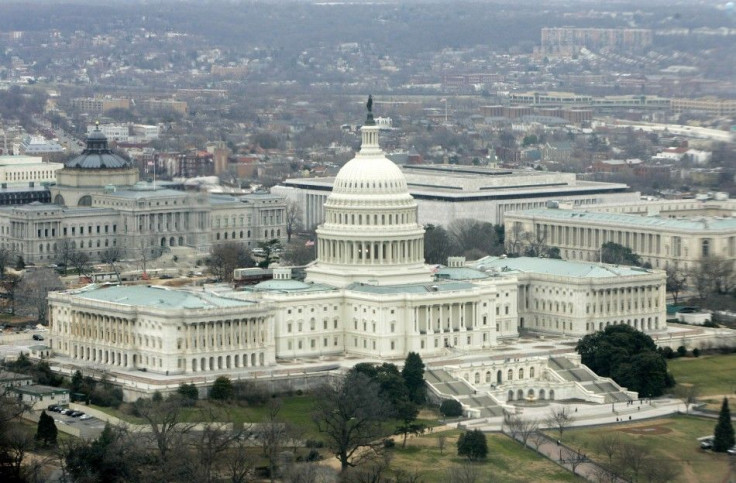U.S. Debt Deal: With Super Committee Seats Filled, Hard Work Begins
Analysis

Polish-up the front bumper and put that car on a dealer's lot as it's all ready to go -- the only question now is: Will Congress' new super committee achieve anything? Or will it get stuck in neutral?
House Minority Leader Nancy Pelosi, D-Calif., completed the membership of the new, 12-member, bipartisan super committee Thursday by naming the three House Democratic members, Rep. Xavier Becerra, Rep. James Clyburn, and Rep. Chris Van Hollen.
Pelosi added that she hoped the committee could achieve balance as part of its goal of reducing the deficit, sfgate.com reported Friday. Her bottom line is for a "grand bargain" that "reduces the deficit by addressing our entire budget" -- including implementing tax increases -- "while strengthening Medicare, Medicaid and Social Security" -- no benefit cuts in entitlements.
The House Minority Leader is also demanding that the committee conduct its deliberations in public.
Pelosi Wants Debt Reduction...and a Jobs Bill
On the slow-growth of the U.S. economy, Pelosi, a veteran San Francisco Democrat and the first female to serve as House Speaker, said Congress should not wait for the committee, but should "pass legislation for sustainable jobs" such as a highway bill or a national infrastructure bank.
With Pelosi's appointments, the super committee is now complete, as the Republican Party earlier this week announced its six appointees to the new bipartisan, 12-member board charged with cutting the budget deficit by about $1.5 trillion by Thanksgiving.
The House Republican members are, appointed by House Speaker John A. Boehner, R-Ohio: Rep. Jeb Hensarling of Texas, a Conservative leader; Rep. Dave Camp of Michigan, chairman of the Ways and Means Committee, and Rep. Fred Upton, also from Michigan, chairman of the Energy and Commerce Committee and a former budget officer in the Reagan administration.
In the Senate, Minority Leader Mitch McConnell, R-Ky., appointed Sen. Jon Kyl, R-Ari., the chamber's No. 2 Republican; Sen Rob Portman, R-Ohio, who served as director of the Office of Management and Budget under President George W. Bush, and anti-tax advocate Sen. Patrick J. Toomey, R-Penn.
Also earlier -- Senate Majority Leader Harry Reid, D-Nev., appointed three key Senate Democrats to sit on the now high-profile board.
Reid-appointed Senate Finance Committee Chairman Max Baucus, D-Mont., Sen. John Kerry, D-Mass. and Sen. Patty Murray, D-Wash. will serve on the committee.
The super committee is under consideable pressure to produce an even bigger deficit reduction than what Congress and President Barack Obama called for in the U.S. debt deal.
Since the debt deal's passage, U.S., European, and other global markets have been roiled by concern about government debt, also called sovereign debt, in Europe, and by the U.S.'s budget deficit and tepid economic recovery.
Dow Jones Average Records Wild Week
The Dow Jones Industrial Average (DJIA) has also risen or fallen 400 points for four consecutive days, leaving U.S. investors bewildered, and perhaps a bit angry. On Friday, the Dow (famous last words), perhaps because institutional investors were tired from a frenetic week, drifted slightly higher, rising 100 points at mid-day to 11,243.
Institutional investors are concerned that the U.S. economic recovery is slowing to a crawl, and that inadequate job growth will weigh on both corporate revenue and earnings growth. Add a market that's also concerned about the U.S. Government's debt service levels, and the result is a stock market where fear and volatility are pervasive, and where the better data points - such as strong profits in many U.S. corporations - are being blotted-out.
The relevance of the above for the super committee? It goes without saying with institutional investors on edge, the investors want to see a functioning, focused and united super committee that achieves at least $1.5 trillion in additional deficit reduction over 10 years.
Political/Public Policy Analysis: The super committee is now complete. Here's a memo to the members: get to work immediately. Don't wait until Congress returns after Labor Day: announce a "quick-start" -- a bipartisan agreement by the committee for an additional $500 billion to $800 billion in deficit reduction.
If the super committee does the above -- even before the board has held its first formal meeting -- there's no guarantee it would help calm the stock, bond, and currency markets.
But as the saying goes, it's a good way to start.
© Copyright IBTimes 2024. All rights reserved.





















